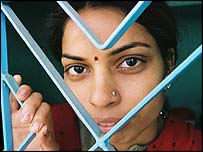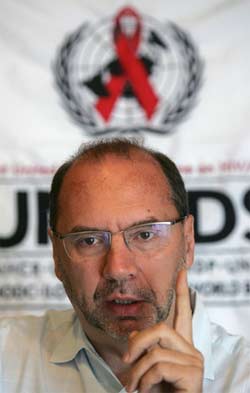 |
| Two-thirds of Asians suffering from AIDS are in India (Image: BBC) |
The report provides what is said to be the most comprehensive estimate to date on how different countries are affected by the AIDS epidemic.
Although the infection rate is gradually decreasing due to population growth and many infected individuals living longer thanks to new medications, the actual number of people living with the disease has reached an all-time high.
This report was published just before an important conference at the United Nations, where world leaders will be expected to outline their commitments to combating AIDS.
In a quarter-century since the first AIDS cases were identified in the United States, 25 million people have died from this disease, and today nearly 40 million people worldwide are living with HIV, half of whom are women.
 |
| Mr. Peter Piot, head of UNAIDS (Image: postimees) |
This UNAIDS report shows that the Sub-Saharan region remains the most heavily affected area in the world.
The country most affected is the small nation of Swaziland, where one-third of the adult population is infected with HIV. However, Kenya and Zimbabwe report a decrease in HIV infection rates. South Africa still has the highest number of HIV-positive individuals in the region, with 5.5 million adults living with the virus.
In Asia, AIDS is spreading in India largely due to unprotected sexual relations. Cambodia and Thailand have seen a reduction in infection rates, but UNAIDS notes that Vietnam, Indonesia, and Papua New Guinea remain concerning hotspots.
The use of drugs is contributing to the rising number of AIDS cases in Russia and Ukraine.
How to prevent the spread of HIV is an issue that world leaders must confront. They are convening at the UN for a conference starting today.
Mr. Peter Piot, head of UNAIDS, stated that there is no easy solution for countries like South Africa, as this is a very complex issue.
According to Mr. Piot, it is clear that activities such as distributing condoms to the public or erecting signs that read “AIDS Kills” will not be sufficient; a fundamental change in cultural values and societal environment is needed.
Half of the 126 countries surveyed for the UNAIDS report have policies that make it difficult to prevent HIV transmission, such as laws that criminalize homosexuality or deny inmates access to condoms or sterile needles for drug use.
When political leaders make their official statements on Friday, they will need to find common ground that all nations can agree upon and sign.


















































